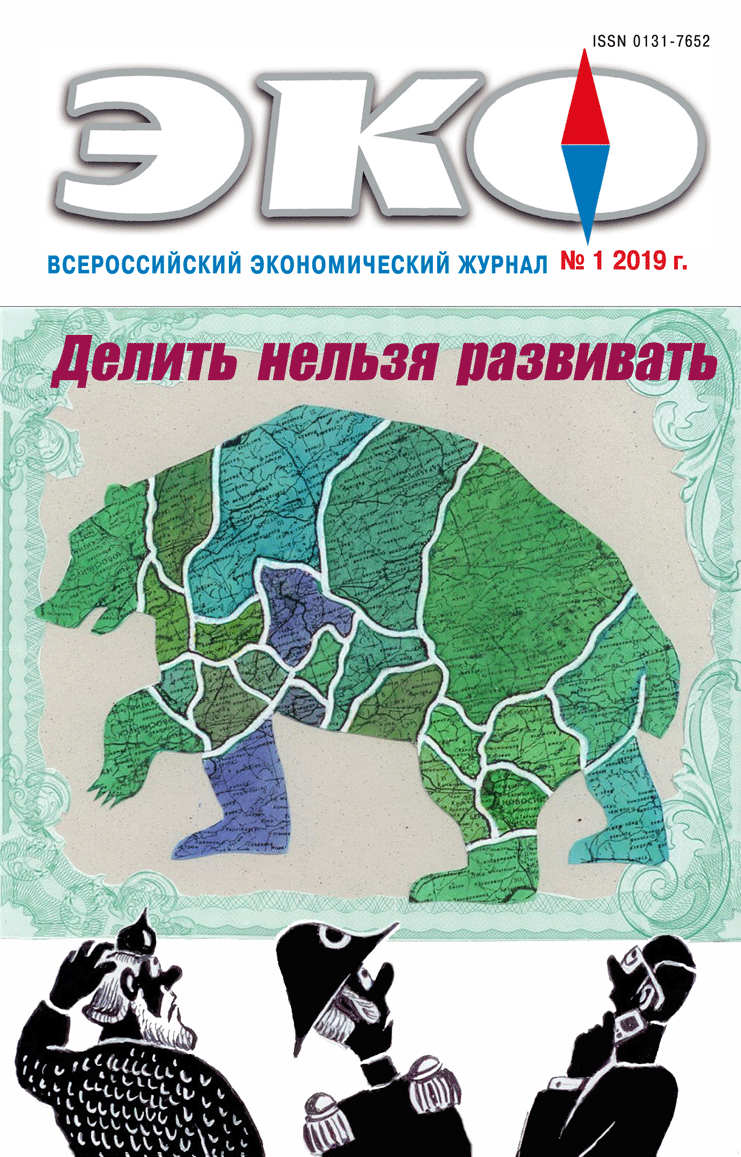MONITORING OF ECONOMIC TRANSFORMATION
Published 2019-01-08
Keywords
- Аgro-food market,
- agrarian policy,
- incomes of the population,
- food consumption,
- food imports
- import substitution,
- embargo,
- protectionism ...More
How to Cite
1.
Belova Т. Situation in the Food Market: New Signals and Old Problems. ECO [Internet]. 2019 Jan. 8 [cited 2026 Feb. 4];49(1):131-52. Available from: https://ecotrends.ru/index.php/eco/article/view/1754
Abstract
The current situation in the agrifood market is characterized, on the one hand, by the differentiation of food markets in terms of saturation, and on the other hand, by a reduction in consumer demand due to rising prices. Consumer prices in these segments are much lower than the level of inflation. The processes of import substitution in the food market occur against a background of a decline in consumer demand and an increase in the share of food expenditures in households. Analysis of regional statistics shows a high degree of stratification both in terms of production and consumption of food per capita. An outpacing increase in food prices casts doubt on the correctness of the choice of measures and instruments of protectionism. Proper protectionism, the author believes, can not be realized at the expense of reducing the standard of living of the population, but rather combine market mechanisms with point-wise temporary support for those industries that are characterized by growing profitability and high return on investment. The author considers it necessary to use the tools of the green box (in particular, the program of food cards), the lifting of the embargo on food imports and the introduction of export and import customs duties, depending on the degree of saturation and the formation of domestic industry markets.References
- Аганбегян А. Г. Сельское хозяйство – локомотив социально-экономического роста России // ЭКО. 2017. № 5. С. 5–22.
- Бастиа Ф. Кобден и Лига. Движение за свободу торговли в Англии / Пер. с франц. Ю. А. Школенко. Челябинск: Социум, 2003. 732 с.
- Барсукова С. Ю. Молочные реки России // ЭКО. 2016. № 6. С. 5–17.
- Барсукова С. Ю. Аграрная политика России // Общественные науки и современность. 2017. № 5. С. 31–45.
- Белова Т. Н. Ситуация на молочном «фронте» в период санкций // Экономист. 2015. № 4. С. 84–91.
- Гумеров Р. Р., Гусева Н. В. Об эффектах и парадоксах импортозамещения в контексте национальной продовольственной безопасности // ЭКО.2018. № 2. С. 90–102.
- Райнерт Э. С. Как богатые страны стали богатыми, и почему бедные страны остаются бедными [Текст] / Пер. с англ. Н. Автономовой; под ред. В. Автономова; Гос. ун-т – Высшая школа экономики. М.: Изд. дом Гос. ун-та – Высшей школы экономики, 2011. 384 с.
- Самнер У. Протекционизм, или теория происхождения богатства от непроизводительного труда / Пер. с англ. Я. Новикова. С.- Петербург. 1893.
- Самнер У., Новиков Я. А. Заблуждения протекционизма М., Челябинск: Социум, Экономика, 2002. 254 с.
- Тулохонов А. К. Вновь о «борьбе» с урожаем, или куда идет локомотив российской экономики // ЭКО. 2018. № 4. С. 102–114.DOI: 10.30680/ECO0131–7652–2018–4–102–115
- Хлыстун В. Управление земельными ресурсами: состояние и приоритеты развития // Экономист. 2018. № 4. С. 40–46.

